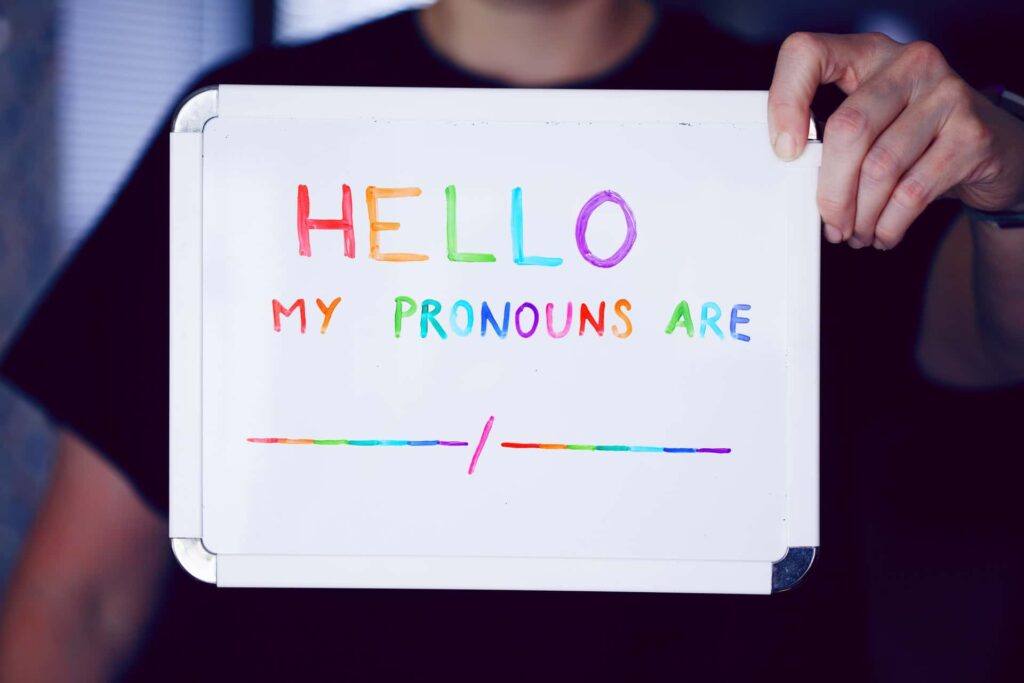You might have noticed that in my email signature I have “(he/him)” next to my name and wondered why I do that.
After all, with a name like William, you might think that it’s obvious that I identify as a man and therefore use he or him or his to refer to me, or something connected to me.

In English, we use pronouns all the time to avoid repeating someone’s name.
We also do it when we don’t know – or can’t remember – someone’s name.
He’s going to send it later.
She said she doesn’t know when it will be.
Using personal pronouns is an essential component of language, but not everyone takes the same approach to them.
Pronouns form part of our identity
For some people, gender pronouns are a critical part of their identity, and they want to be addressed in a way that reflects that.
Pronouns such as “he/him,” “she/her,” “they/them,” and “ze/hir” can be an essential part of how people express themselves and interact with the world.
Increasing awareness of personal pronouns
As our society becomes more aware of the importance of respecting people’s identities and experiences, the use of gender pronouns is becoming more common. You may have noticed more people adding their pronouns to their email signatures or social media profiles. This is a way for people to make their preferred pronouns clear and to encourage others to use them.
Using the correct pronouns is a simple but powerful way to show respect for someone’s identity. It can also help create a more inclusive environment for everyone. When someone is referred to using the wrong pronouns, it can be hurtful and invalidating. It can also create confusion and miscommunication.
It’s worth noting that not everyone identifies as strictly a man or a woman, and not everyone uses “he” or “she” pronouns. Some people prefer to use gender-neutral pronouns like “they/them” or “ze/hir.” Others may prefer to use no pronouns at all and instead be referred to by their name or a specific title like “doctor” or “professor.”
Some people do not use pronouns
Some people prefer not to use a pronoun. In those cases, instead of using the pronoun – just use their name.
Asking someone for their pronouns
So if you’re not sure what pronouns someone uses, it’s okay to ask. You can simply say, “What pronouns do you use?” or “Can you remind me of your pronouns?” This is a respectful way to ensure that you’re addressing someone in the way that they prefer.
Conclusion
In conclusion, personal pronouns are an essential part of language and identity. Using the correct pronouns is a simple but powerful way to show respect for someone’s identity and create a more inclusive environment for all.
So, the next time you’re unsure about someone’s pronouns, don’t be afraid to ask.
Further reading
Stonewall’s guide to using pronouns
Photo by Sharon McCutcheon

